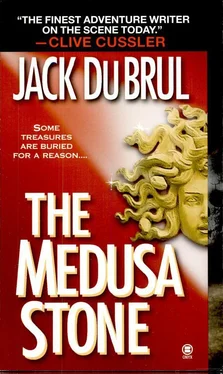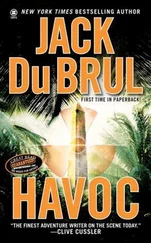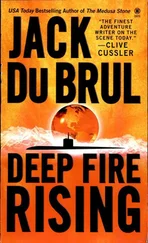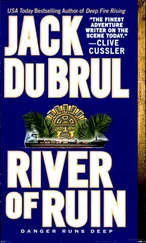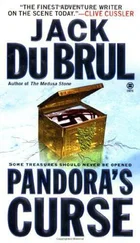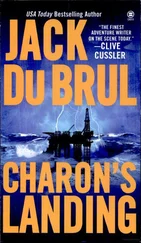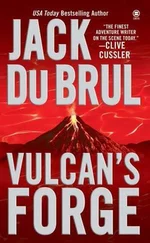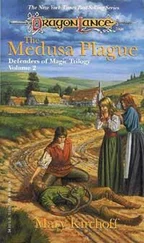Jack Du Brul - The Medusa Stone
Здесь есть возможность читать онлайн «Jack Du Brul - The Medusa Stone» весь текст электронной книги совершенно бесплатно (целиком полную версию без сокращений). В некоторых случаях можно слушать аудио, скачать через торрент в формате fb2 и присутствует краткое содержание. Жанр: Триллер, на английском языке. Описание произведения, (предисловие) а так же отзывы посетителей доступны на портале библиотеки ЛибКат.
- Название:The Medusa Stone
- Автор:
- Жанр:
- Год:неизвестен
- ISBN:нет данных
- Рейтинг книги:3 / 5. Голосов: 1
-
Избранное:Добавить в избранное
- Отзывы:
-
Ваша оценка:
- 60
- 1
- 2
- 3
- 4
- 5
The Medusa Stone: краткое содержание, описание и аннотация
Предлагаем к чтению аннотацию, описание, краткое содержание или предисловие (зависит от того, что написал сам автор книги «The Medusa Stone»). Если вы не нашли необходимую информацию о книге — напишите в комментариях, мы постараемся отыскать её.
The Medusa Stone — читать онлайн бесплатно полную книгу (весь текст) целиком
Ниже представлен текст книги, разбитый по страницам. Система сохранения места последней прочитанной страницы, позволяет с удобством читать онлайн бесплатно книгу «The Medusa Stone», без необходимости каждый раз заново искать на чём Вы остановились. Поставьте закладку, и сможете в любой момент перейти на страницу, на которой закончили чтение.
Интервал:
Закладка:
“What do you know about Eritrea?” Hyde asked.
The question surprised him. Eritrea was a backwater even by African standards, and Mercer couldn’t guess Hyde’s interest.
“Located just north of the Horn of Africa on the Red Sea coast, bordered by Sudan, Ethiopia, and Djibouti. They’ve been independent from Ethiopia since 1993. Their struggle was a Cold War battleground between the U.S. and the Soviets in terms of arms and aid. Currently, Eritrea has nothing in terms of raw materials, industries, or hope. I’ve heard the people live on little more than the pride of being independent for the first time in modern history.”
“Very true, very true.” Hyde nodded at Mercer’s assessment. “There’s a chance you can change all of that if you’re interested.”
A waiter took their lunch orders before Hyde continued. “While most Eritreans are agrarian, cattle mostly, there is one major urban center, Asmara, the capital. It was the only city left standing after the war. The country’s in shambles. Per capita income hovers around one hundred and forty dollars a year. Still, the land can support the three million people living there, so starvation has yet to become a problem. But there are a quarter of a million Eritreans living in the Sudan, refugees deliberately not allowed to return because the influx of that many people would shatter the struggling economy. It’s a sore spot for the government because they want to bring the displaced home. However, they refuse aid, not wanting to become a debtor nation, and unless some miracle economic boom takes place, those people are going to rot in some of the worst refugee camps on the continent.”
From his briefcase, Hyde withdrew a thick manila file folder bound with rubber bands. “You have to understand that what I am about to tell you is strictly confidential. In fact, some of this information has only recently been declassified from ‘Top Secret’ down to ‘Eyes Only.’ ” Hyde slid some photographs from the folder across the table, pulling his hand back quickly as if the images could somehow contaminate him.
Mercer had been to Africa, knew the people, and was not immune to their suffering. He had seen some of the worst hellholes on earth while in Rwanda during their civil war. He could still feel the bony limbs of children he’d carried to aide stations where the struggle for food and medicine was a losing battle. He had seen the ravages of disease-cholera, malaria, and AIDS. He had watched human skeletons shuffle in miles-long lines escaping one war and walking into the teeth of another.
While these images haunted the darkest nightmares his sleep could generate, they could not prepare him for the six photographs before him. One showed an old man lying against a rusted drum, his legs looking like gnarled twigs. A feral dog chewed on one of his feet as the last of the man’s blood soaked into the ground. Another was of a young girl, her face peaceful in death, while in the background uniformed men waited in line to rape her corpse. Another showed a child-Mercer couldn’t tell the sex-waving at the camera with its body covered in suppurating wounds, dark leaking holes in its flesh that were eating away what little starvation had left behind.
He didn’t want to look at the other three. Here were images of the worst humans could do to each other, and he felt the impotency he’d experienced in Rwanda. The tides of misery were endless, and no matter how much he’d thrown himself at the problem, it never went away. He was also enraged that the photographer had stayed behind the anonymity of his camera and not stepped in to help.
“I’m sorry that you had to see those before we ate,” Hyde said, but there was no apology in his voice. The pictures were designed to provoke a deliberate response and Mercer knew it. He steeled himself for what was to come. “I believe we have the ability to help these people, to give Eritrea hope for the first time.
“In 1989,” Hyde continued, “NASA and the U.S. Air Force launched a spy satellite code-named Medusa. It was meant to be the eyes of the Star Wars defense program. But there was an accident, and it crashed before completing a single orbit.
“As it came down, its cameras exposed a series of pictures. Because the area photographed was not deemed strategically important and because the Air Force hadn’t been able to calibrate the satellite, the photos lay forgotten for over a decade. Even after they were declassified, no one paid any attention to them. Much of what they show is gibberish even to those who developed the system.
“The clearest Medusa pictures show what is now northern Eritrea and eastern Sudan.” Hyde pulled more photos out of the file and placed them before Mercer.
Though familiar with satellite photography, Mercer had never seen pictures like these before. These shots, twenty in total, resembled X rays. It was as if he was looking inside the earth, rock strata showing up in various shades of gray, what he assumed to be underground water appearing as bright white rings and whorls cutting across each shot, all beneath a ghost image of the surface topography.
“These shots are of northern Eritrea, each one representing a deeper level below the surface. As Medusa went down, its onboard computer followed preprogrammed instructions, increasing the power to its photographic element between each picture,” Hyde explained as Mercer shuffled through the stack, noting similarities between them. It was like looking at a cutaway model, peeling back successive layers with each photograph.
Mercer was awed by the satellite’s capabilities. “What in the hell was this Medusa?”
“It had abilities that go far beyond what you see here. When I first became aware of these pictures, I asked the same question. The Air Force liaison who showed them to me equated Medusa to a medical CAT scanner or an MRI, which make old-style X rays seem like a throwback to the nineteenth century. We’re talking about one of the most sophisticated machines man has ever built. If it hadn’t crashed, Medusa would have forever put the United States on the forefront of orbital surveillance and intelligence gathering.”
“Fascinating.” Mercer had no idea where Hyde was heading with all of this, but he couldn’t help being intrigued. “But I don’t see what this has to do with me.”
“Let me show you this and see what you think.” Hyde pulled another picture from the file.
Mercer glanced at it quickly; it looked no different from the other Medusa pictures.
“One of the scientists who built the satellite was a geology buff. A rock hound is what he called himself. Anyway, while modeling for the system, he was tasked with developing computer simulations of what Medusa’s potential would be. Because so much of South Africa’s underground makeup, its geology, has been studied by mining companies, it’s one of the best-catalogued regions for what lies under the earth’s surface. What you are seeing there is what they believed the area around Kimberley, South Africa, would look like if Medusa were to use its positron camera on it.”
Mercer understood and then he saw it.
First known as Colesberg Kopje because of the small hillock on the African veldt that was nothing more than a blister on the open savanna, Kimberley had grown into a boom town before the turn of the twentieth century when diamonds were discovered there. Within a few years, a city had grown up on the plain and germinated the fortunes of such notables as Cecil Rhodes and the DeBeers Corporation. The diamonds had long since run out at Kimberley, but in their wake, the miners had left a mile-wide, mile-deep hole in the earth. It was the mouth of what was known as a kimberlite pipe.
Kimberlite was the name given to a diamond mine’s lodestone. In fact, Mercer had a large chunk of it in his home office that acted as his good luck piece. The two minerals went hand in hand, much like gold and quartz. The kimberlite pipes are channels to the earth’s heart, openings where molten material, including diamonds, are thrust up toward the surface under tremendous pressure. Born in the planet’s liquid interior, diamonds are nothing more than elemental carbon, no different from coal or the graphite found in pencils, except that nature spent a little more time cooking the atoms and compressing them into perfect crystals. From their first discovery on the Indian subcontinent, Mercer knew, diamonds have had the power to captivate men and drive nations to war. Their dazzling beauty is the mirror reflection of our own greed, and their purity is the foil to humanity’s ugliness.
Читать дальшеИнтервал:
Закладка:
Похожие книги на «The Medusa Stone»
Представляем Вашему вниманию похожие книги на «The Medusa Stone» списком для выбора. Мы отобрали схожую по названию и смыслу литературу в надежде предоставить читателям больше вариантов отыскать новые, интересные, ещё непрочитанные произведения.
Обсуждение, отзывы о книге «The Medusa Stone» и просто собственные мнения читателей. Оставьте ваши комментарии, напишите, что Вы думаете о произведении, его смысле или главных героях. Укажите что конкретно понравилось, а что нет, и почему Вы так считаете.
